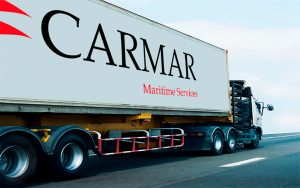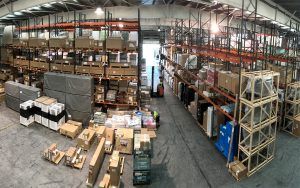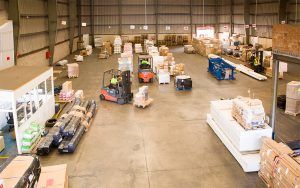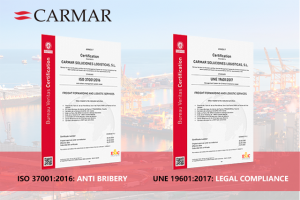consult the most frequent questions of our customers.
If you have any questions that we have not been able to resolve please contact us
frequent questions
A Customs Agent is the person authorized by the SHCPL (Secretariat of Finance and Public Credit in Spain) to carry out the clearance of merchandise for export and import for themselves or from third parties, which are subject to customs inspection and restrictions, done so in accordance with customs regulations and in accordance with current customs legislation.
The Customs Agent acts as a legal representative of the importer and exporter to the customs of origen as well as the destination customs according to the origin of the shipment and service.
The commercial invoice is a document between the exporter and the importer in which the details of both importer and exporter are detailed, as well as the characteristics and value of the merchandise. This document is necessary for customs clearance, and is similar to a current sales invoice.
The exporter sends it to the importer to collect the goods once they are available.
The role of the customs agents is the presentation of the customs documentation at the customs office, the realization of procedures for special goods, and payment on behalf of the owner of tariffs, among other functions. The functions of the customs agents are:
- Submit the necessary documentation to proceed to dispatch the merchandise (DUA, commercial invoice, packing list…)
- Carry out the pertinent procedures for all merchandise that is subject to physical inspection
- Be fully and permanently at the disposition of the customs office in the event that physical inspection of the merchandise is required, as well as the sending of documentation that the customs office deems pertinent.
- The customs agent pays the relevant customs duties and taxes on behalf of the merchandise owner, which is later reimbursed by the client to the customs agent.
- The customs agent has permission to allow the exit of merchandise that has not yet been dispatched from the customs premises to a temporary storage warehouse, provided that is has been notified to and authorized by the administration.
The DUA is the Single Administrative Document corresponding to the declaration of import or export goods to the relevant customs authorities of the country in question.
The ADT allows you to store undelivered (unpacked?) goods while there is not a final destination designated for them yet (stand by). The goods may be stored for a limited period of time without being subject to an import declaration. The goods may remain in the ADT for 45 days if they have been transported by sea.
The warehousing and logistics carried out during the permanence of the merchandise in the ADT is not subject to VAT until its abandoned, if this was the case.
Incoterm represents a universal term which defines a transaction between the importer and exporter, so that both parties understand the tasks, risks, and responsibilities involved, as well as the logistic and transportation management from the exportation of the product to the reception by the importing country.
The IGIC (Canary Islands Indirect General Tax) is a general tax on added value, which applies to the sale of products and services with certain exemptions, which is a determining factor for consolidated cargo to the Canary Islands.
It replaces the added value tax (VAT) The IGIC applies different tax rates depending on the nature, activity, goods, products and services that are taxed:
- Exempt (0%).
• Reduced (3%).
• General (7%). The most utilized.
• Increased: (9% y 13%)
In all the Canary Islands there are different taxes to VAT. These are: IGIC, AIEM y tax over minor-trading (Recargo minoristas).
It is a tax that applies to Canary Islands companies and merchants considered minorities, who sell a product without having submitted it to manufacturing processes. This rate will be charged when sales to consumers during the previous year were greater than 80% of the total sales made.
The percentage applied is fixed and represents 10% applied to IGIC liquidation.
This is when the quantity of goods by one importer/ exporter is insufficient to fill an entire container, so it is then grouped with goods from other clients to fill the container.
This refers to all cargo from a single shipper/ importer to whom the exclusive use of a vehicle or container is reserved and for whom all loading and unloading operations are carried out, in accordance with the instructions of the shipper/ importer.
Both the commercial invoice and the Packing List (P/L) will be required to carry out the transport.
- Commercial invoice:
The commercial invoice is a document or proof of transaction between the exporter and importer. The exporter sends it to the importer to collect the goods once they are available.
The commercial invoice contains all the basic information regarding the transaction and is always a requirement for customs clearance. Although it includes some data specific to import and export operations, it is similar to a current sales invoice. In general , the following minimum data are included:
- Details of the exporter and importer (name, business name and address)
• Expedition date
• Invoice number
• Description of the goods (type of product, quality, denomination, reference, etc.)
• Unit of measure (package) and quantity of goods (number of packages)
• Unit value (the value of each package must be detailed)
• Total invoice value and payment currency. The equivalent amount must be indicated in a freely convertible currency to euros or another legal tender in the importing EU country.
• Payment conditions (payment method and payment date, discounts, expiration dates, etc.)
• Delivery conditions according to the corresponding INCOTERM
• Tax free (the invoice can never include Tax, VAT, IGIC.AIEM, etc.)
The original commercial invoice and at least one copy must always be submitted. It can be presented in any language but an English translation is recommended.
- Packing List (P/L) – List of packages:
It is an inventory of the merchandise to be imported, required for customs clearance and accompanies the commercial invoice and transport documents.
The following information is usually included:
• The exporter, the importer and the transport company
• Expedition date
• Transport invoice number
• Type of packaging (drum, cage, cardboard, box, barrel, bag, etc.)
• Number of packages
• Contents of each package (description of goods and number of articles in each package)
• Marks and numbering
• Net weight, gross weight and dimensions of packages
The packing list can be presented in any language, but an English translation is recommended.
Basic requirements for transport to the Balearic Islands
Merchandise dispatched to the Balearic Islands is not subject to any special tax, nor any customs requirements by the relevant authorities, as is the case in the Canary Islands. These dispatches are treated like any other in the peninsular zone.
For any shipment to the Balearic Islands, we need a delivery note, in which the following information must be detailed:
- Date
- Delivery note number
- Description of merchandise
- Ordenante: (this is the person/company who orders the service)
- Name of the ordenante, address, postal code, telephone
- Name of recipient, address, postal code, telephone
- Destinatario: (this is the consignee)
- Unit of measure (package) and quantity of goods (number of packages)
- Weight (kg) and volume (m3)
This is a central government tax of indirect carácter and selective application which aims to promote the production of godos in the CAnary Islands VS mainland Spain, following transactions are subject to this tax:
Importation, in the same territory, of the same goods, what ever the precedence is (national, EU or third coutries), if the final usage of the goods (business, official, or private) and the condition
- 5% over the value of the goods
- 15% over the value of the goods
frequent questions
contact us
If you have any questions that we have not been able to resolve please contact us





